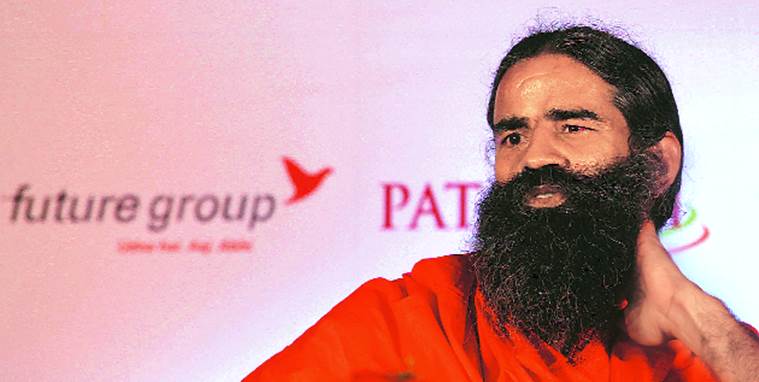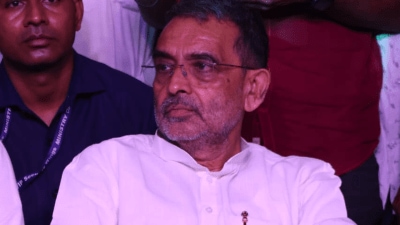The Prime Minister’s Office (PMO) held a meeting this week to discuss setting up of the country’s first Vedic Education Board, as proposed by yoga guru Baba Ramdev.
Principal Secretary to the Prime Minister Nripendra Misra met the secretaries of school and higher education in the Union HRD Ministry, S C Khuntia and V S Oberoi respectively, on Tuesday to explore the idea of setting up a national board that would allow affiliated schools to offer a blend of the traditional gurukul system and modern curriculum.

[related-post]
The meeting, sources said, followed a proposal by the Haridwar-based Vedic Education Research Institute run by Ramdev’s Patanjali Yogapeeth. As per this proposal, the VEB will help Indianise education by offering a mix of “archaistic education of Maharshi Dayanand”, “human education of Aurobindo”, “vedanta education of Swami Vivekananda” and modern curriculum. Its schools will also focus on teaching the Vedas, Upanishads and Gita along with Sanskrit, Hindi, regional languages and English.
The VEB would have a structure similar to the Central Board of Secondary Education (CBSE), including a chairman and vice-chairman. Schools up to Class XII would be affiliated to it, as per the proposal, and the VEB would hold examinations and prescribe a curriculum for them.
While the Vedic Education Research Institute also wants to run and control the board, it’s not clear if the government is open to this, and the matter will need further discussion.
The VEB would be essentially on the pattern of Acharyakulam, a school run by Ramdev in Haridwar that was inaugurated by Narendra Modi in April 2013, before he became prime minister. It has over 400 boys and girls in Classes V to VII studying Sanskrit, the Vedas and Shastras, apart from the National Council of Educational Research and Training curriculum prescribed by most boards in the country.
If established, the vedic board, sources said, would benefit educational institutions such as Acharyakulam, Vidya Bharati schools (run by the RSS) and gurukuls run by the Arya Samaj, as it will allow them to sustain their model of education up to Class XII, which the CBSE currently does not permit.
Story continues below this ad
Since the Modi government took over in 2014, Ramdev has repeatedly called for a vedic education board. “After yoga kranti (revolution), there is a need for shiksha kranti (revolution in education).
There is a need for Bharatiyakaran and swadeshikaran (indigenisation) of education. Through a conspiracy, (Thomas Babington) Macaulay destroyed 7,32,000 gurukuls. Now our resolution is to set up, if not 7 lakh, then certainly 700 gurukulam and acharyakulam all over the nation,” he had said in Jaipur last year.
A government panel on Sanskrit, headed by former chief election commissioner N Gopalaswami, too had mooted the idea of a national school board for Sanskrit and vedic studies last month, but the meeting chaired by Misra was specifically on Ramdev’s proposal.
HRD Ministry spokesperson Ghanshyam Goel did not respond to questions emailed by The Sunday Express. Ramdev’s aide Acharya Balkrishna was not available for comment despite repeated attempts.

 Such a board would have structure similar to CBSE.
Such a board would have structure similar to CBSE.






